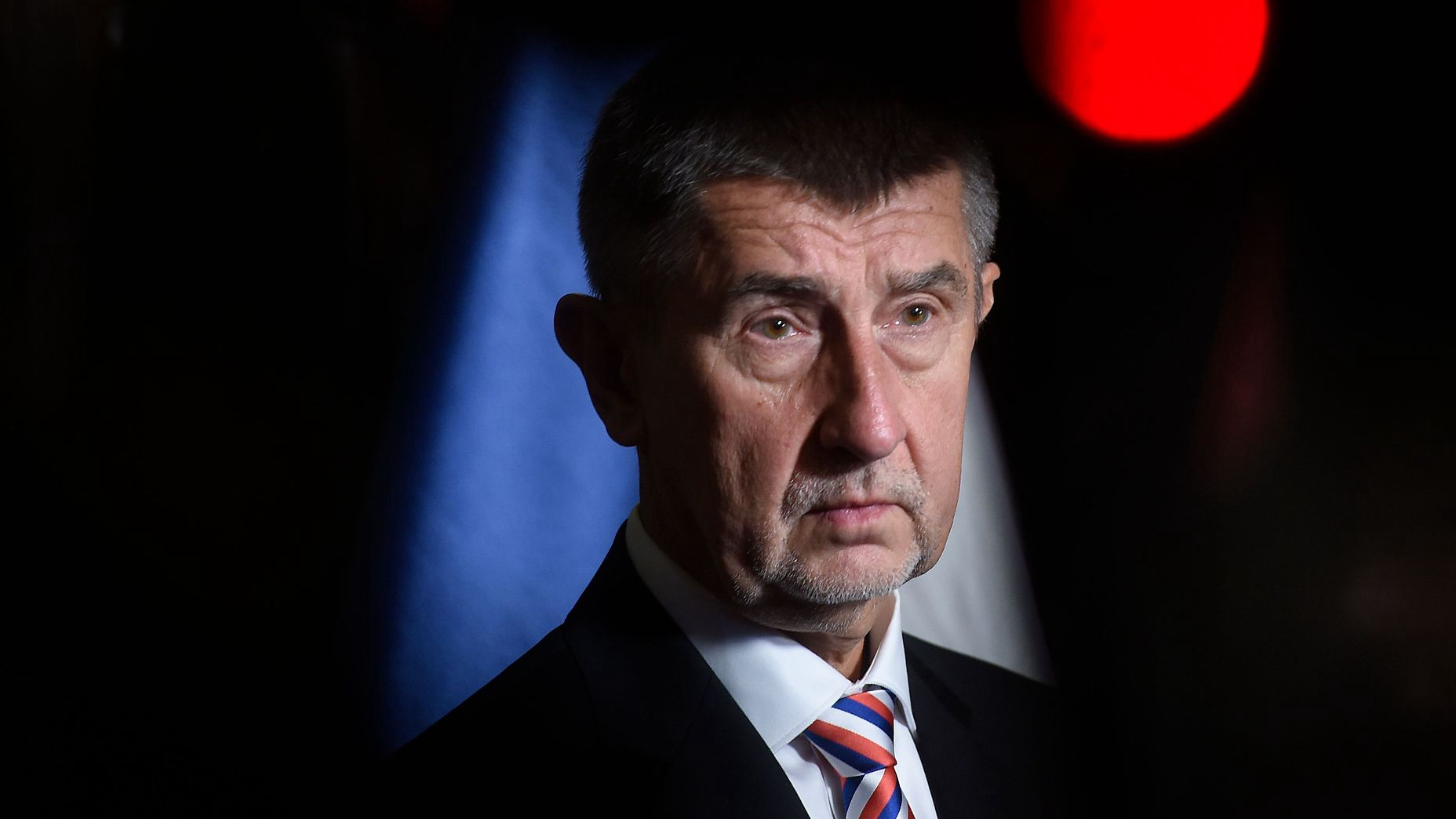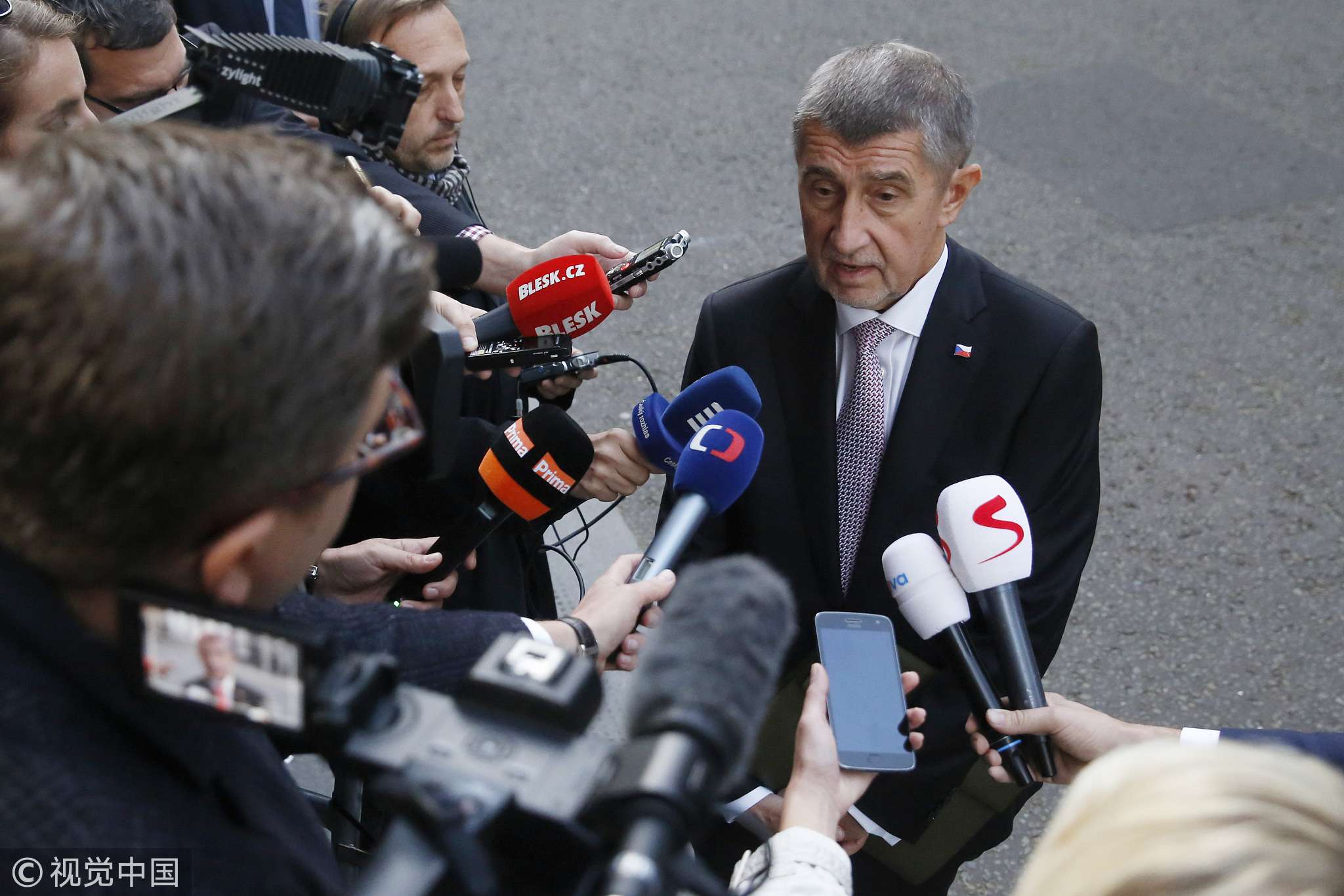
Politics
07:53, 02-Nov-2018
Czech PM says he dislikes UN migration pact, wants to pull out
Updated
07:06, 05-Nov-2018
CGTN

Prime Minister Andrej Babis said on Thursday he wanted to pull the Czech Republic out of a United Nations migration agreement and would discuss this with his governing coalition partner.
Babis expressed his dislike of the pact a day after Austria said it would follow the United States and Hungary in backing out of the UN pact over concerns that it would blur the line between legal and illegal migration.
A minister in Poland's arch-conservative government has also recommended his country quit the agreement.

Andrej Babis, Czech Republic's prime minister, speaks to members of the media following a bilateral meeting with Theresa May, UK prime minister, not pictured, inside number 10 Downing Street in London, UK, October 24, 2018. /VCG Photo
Andrej Babis, Czech Republic's prime minister, speaks to members of the media following a bilateral meeting with Theresa May, UK prime minister, not pictured, inside number 10 Downing Street in London, UK, October 24, 2018. /VCG Photo
The Global Compact for Safe, Orderly and Regular Migration was approved in July by all 193 UN member nations except US President Donald Trump's administration, which backed out last year. The pact is due to be signed next month in Morocco.
Babis told lawmakers during a Q&A session in parliament that he disliked the agreement and said nobody but the Czech Republic would decide on migration into the country. He said he shared fears that the difference between legal and illegal migration was becoming blurred.
“I do not like the pact,” he said, according to a parliamentary transcript of the debate, when asked whether his government would sign the deal.
“There are issues that can be interpreted in various ways. I will be proposing to my partners in government that we act in the same way as Austria or Hungary.”
The Czechs have stood with central European neighbours such as Hungary and Poland in maintaining a hardline anti-immigrant stance during the course of the European Union's struggle to stem migration to the bloc by migrants fleeing conflict and deprivation, particularly in the Middle East and Africa.
Central European states refused to endorse a Brussels-prescribed quota system to share asylum seekers among all EU member states, a plan dropped earlier this year.
Source(s): Reuters

SITEMAP
Copyright © 2018 CGTN. Beijing ICP prepared NO.16065310-3
Copyright © 2018 CGTN. Beijing ICP prepared NO.16065310-3